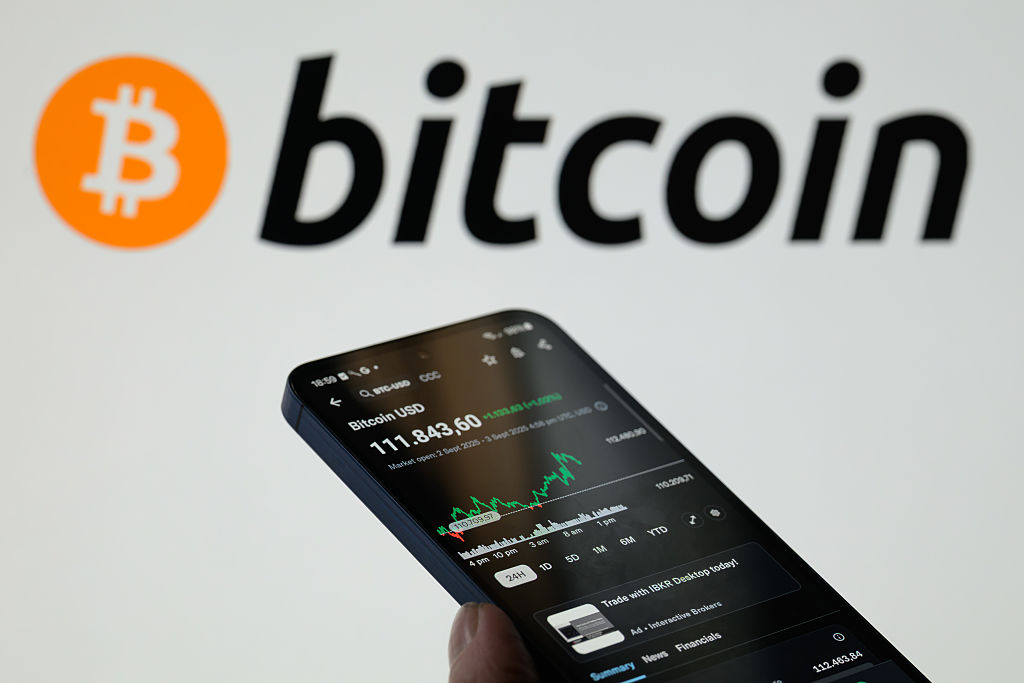Shop around for a cheaper fund deal
The fees you pay to a broker to execute a fund deal are still far from clear. Fortunately, that's about to change, says Piper Terrett. Here's what that means for you.
Get the latest financial news, insights and expert analysis from our award-winning MoneyWeek team, to help you understand what really matters when it comes to your finances.
You are now subscribed
Your newsletter sign-up was successful
Want to add more newsletters?

Twice daily
MoneyWeek
Get the latest financial news, insights and expert analysis from our award-winning MoneyWeek team, to help you understand what really matters when it comes to your finances.

Four times a week
Look After My Bills
Sign up to our free money-saving newsletter, filled with the latest news and expert advice to help you find the best tips and deals for managing your bills. Start saving today!
You wouldn't buy a house without checking the solicitor's charges, so why should it be any different when you buy a fund? Yet frequently, it isn't at all clear how the charges for the typical unit trust are broken down between the parties involved in the buying and selling process. Fortunately, the rules on this are changing in your favour. Here's how and what to look out for in the meantime.
The Financial Conduct Authority's Retail Distribution Review (RDR) has already shed a lot of light on just how much financial advice truly costs by banning financial advisers from accepting commission for recommending particular funds. This transparency is set to be extended to the brokers (such as Hargreaves Lansdown, the biggest seller of funds to private investors), who typically execute a fund deal on your behalf. From 2014 they will be forced to disclose how much they can earn from these transactions, says Richard Dyson in The Daily Telegraph.
In some cases, these middlemen rake in nearly as much as the fund manager who actually does the stock-picking. For example, of the 1.3% cost of buying the Invesco Perpetual High Income fund via Barclays Stockbrokers, says the paper, 0.55% goes to Barclays and 0.75% to the fund manager.
MoneyWeek
Subscribe to MoneyWeek today and get your first six magazine issues absolutely FREE

Sign up to Money Morning
Don't miss the latest investment and personal finances news, market analysis, plus money-saving tips with our free twice-daily newsletter
Don't miss the latest investment and personal finances news, market analysis, plus money-saving tips with our free twice-daily newsletter
In fairness, some brokers, such as TD Direct Investing and Charles Stanley Direct, already list their charges. Others, including Hargreaves Lansdown and Fidelity (FundsNetwork), have yet to disclose them all as their systems are still being adapted.
Unfortunately, greater transparency will not necessarily make picking a broker much easier than it is now. That's because different brokers will still continue to charge different amounts to sell the same product from a given fund group. Hargreaves Lansdown, for example, with a client base of 470,000, can command discounts from some fund providers that other brokers won't easily be able to match.
However, on some trades it will be beaten by the likes of Charles Stanley. Take the Invesco Perpetual High Income fund. It costs 1.5% to own through Fidelity FundsNetwork, 1.25% through Hargreaves Lansdown, and just 1% if bought via Charles Stanley.
So while we welcome any move to make better information on charges more freely available to private investors, our advice won't be changing in a hurry: shop around if you want to get the cheapest deal on a new fund and don't automatically buy through your existing broker if there is a better deal elsewhere.
Get the latest financial news, insights and expert analysis from our award-winning MoneyWeek team, to help you understand what really matters when it comes to your finances.
Piper Terrett is a financial journalist and author. Piper graduated from Newnham College, Cambridge, in 1997 and worked for Germaine Greer and for Adam Faith’s Money Channel before embarking on a career in business journalism.
She has worked for most top financial titles, including Investors Chronicle, Shares magazine, Yahoo! Finance and MSN Money. She lectures part-time at London Metropolitan University and is the author of four books.
-
 Should you buy an active ETF?
Should you buy an active ETF?ETFs are often mischaracterised as passive products, but they can be a convenient way to add active management to your portfolio
-
 Power up your pension before 5 April – easy ways to save before the tax year end
Power up your pension before 5 April – easy ways to save before the tax year endWith the end of the tax year looming, pension savers currently have a window to review and maximise what’s going into their retirement funds – we look at how
-
 Bitcoin 'has become the reserve asset of the internet'
Bitcoin 'has become the reserve asset of the internet'Opinion The cryptocurrency has established itself as the electronic version of gold, says ByteTree’s Charlie Morris
-
 FCA greenlights the first Long Term Asset Fund
FCA greenlights the first Long Term Asset FundNews City watchdog authorises the first Long Term Asset Fund - we explain what they are and how investors can use them.
-
The end of fund management entry fees?
Features Many fund managers have ditched entry fees for retail investors. But not all have, says Sarah Moore, so watch out.
-
 Don’t be misled by ‘superclean’ fund charge spin
Don’t be misled by ‘superclean’ fund charge spinTutorials Fund supermarkets offering cheaper versions of a fund sounds like a good deal for investors. But there are a few snags, says Cris Sholto Heaton.